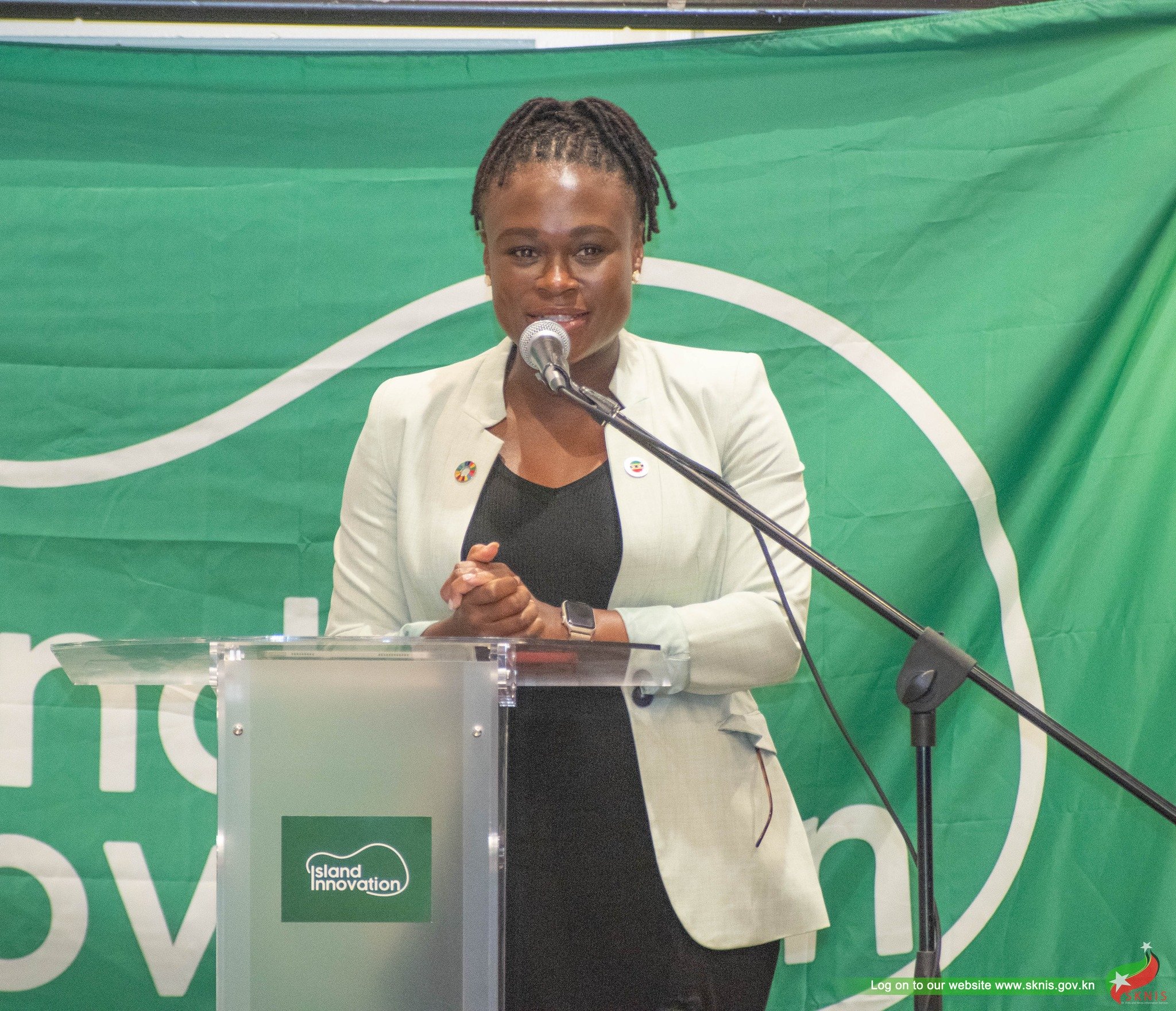Minister Phillip Addresses Climate Change and Social Vulnerability at GSIS Youth Forum
Climate change poses a significant threat to global health and social protection systems, particularly in vulnerable island nations. This was the central theme of discussions at the Island Youth Forum held in Saint Kitts and Nevis in May 2025, a precursor to the Global Sustainable Islands Summit. The forum provided a platform for local, regional, and international youth delegates to explore the interplay between environmental challenges and social vulnerability. Honourable Isalean Phillip, Minister of State for Social Development, delivered a keynote address emphasizing the urgency of addressing this complex issue.
Minister Phillip highlighted the multifaceted nature of social vulnerability, noting that individual characteristics such as income, age, ability, geographic location, gender, and health status intersect to create varying degrees of susceptibility to shocks. Climate change exacerbates these existing vulnerabilities, intensifying the need for robust and adaptable social safety nets. The core challenge lies in designing and implementing effective strategies that cater to the diverse needs of a population facing multiple intersecting vulnerabilities. This includes strengthening healthcare systems, social assistance programs, and emergency response mechanisms to ensure timely and equitable access to support for those most in need. The forum encouraged critical thinking and creative problem-solving among young people to develop innovative solutions for these pressing challenges.
The Minister underscored the importance of youth engagement in addressing these critical issues, urging the delegates to leverage the forum as a platform to voice their concerns, share their ideas, and engage with experts. She emphasized that the discussions and questions raised at the forum mirrored those taking place in high-level policy discussions, highlighting the significance of youth perspectives in shaping future strategies. The Minister challenged the participants to think critically and contribute meaningfully to the discourse, recognizing that their insights are invaluable in developing effective responses to climate change and other threats. The government’s commitment to youth engagement was reiterated, emphasizing the importance of providing young people with opportunities for growth, leadership, and self-empowerment.
While the forum focused on climate change, Minister Phillip broadened the discussion to encompass a wider range of threats to small island states. She stressed the importance of adopting a holistic approach to resilience, acknowledging that non-climatic factors such as trade wars, global pandemics, and geopolitical instability also pose significant risks to socio-economic stability. These diverse challenges underscore the interconnectedness of global systems and the need for comprehensive strategies that address multiple intersecting vulnerabilities. Small island states, given their inherent vulnerabilities, must be particularly adept at navigating these complex and interconnected global challenges.
The Minister encouraged the participants to consider the broader context of vulnerability within small island states, emphasizing that climate change is just one piece of a complex puzzle. Factors like international trade disputes, which disrupt food supply chains and impact cost of living; global health crises, which alter social behaviors and strain health systems; and global conflicts, which influence migration patterns, all contribute to the overall vulnerability of small island nations. These diverse threats require a multi-faceted approach to resilience building, incorporating strategies that address both climatic and non-climatic risks.
The government of Saint Kitts and Nevis, led by Prime Minister Honourable Dr. Terrance Drew, is committed to creating spaces for open and meaningful dialogue with young people. This commitment recognizes the crucial role that youth play in shaping a sustainable and resilient future. The forum provided a tangible example of this commitment, offering a platform for youth to engage with policymakers, experts, and their peers on critical issues facing their communities and the world. By providing youth with opportunities to voice their concerns, participate in decision-making processes, and access opportunities for growth and leadership, the government aims to empower the next generation to tackle the complex challenges ahead. This approach underscores the importance of intergenerational collaboration in building a more sustainable and equitable future for all.
Share this content:












Post Comment